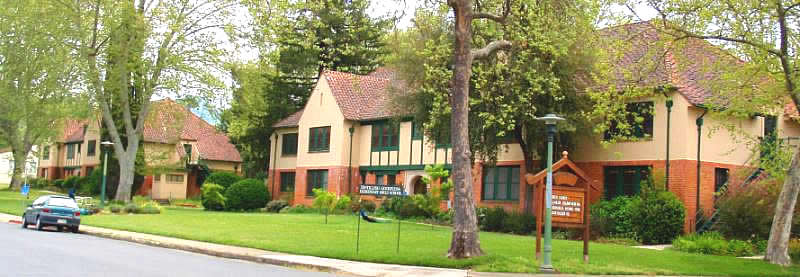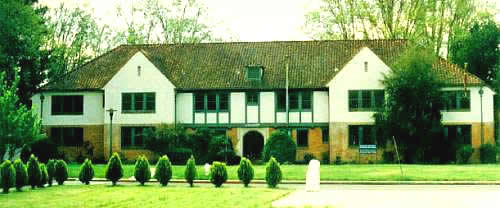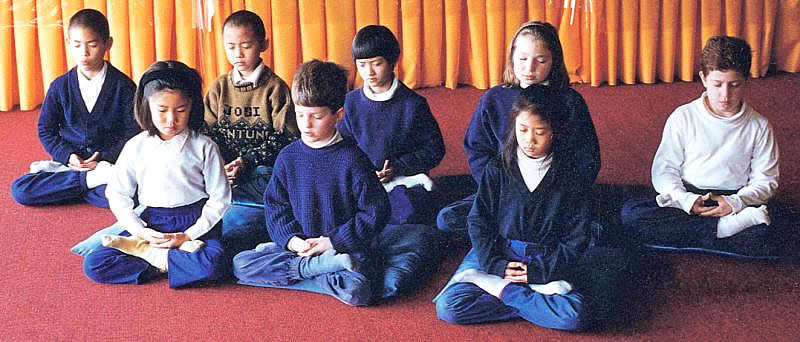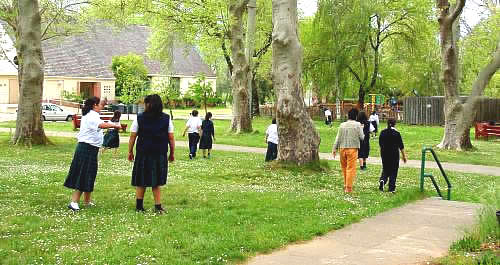 |
|
The Most Natural Thing in the World
By Gwo Fan
When people ask what it was like to grow up in the City of Ten Thousand Buddhas, I’m never quite sure how to answer. It was just what it was. I started attending pre-kindergarten in CTTB (back when they had a pre-kindergarten class) and graduated from Developing Virtue Girls High School fourteen years later, so it made up nearly all of my educational experience until I went to college.
Our teachers were mostly lay volunteers and nuns, our lunches at the Dining Hall were prepared by a volunteer kitchen staff, meditation class was part of our regular curriculum, we frequently heard that we should practice goodness and avoid harming others, and the community around us was full of people dedicated to putting that into practice.
And, perhaps most importantly to us, we had a magical playground that included not just regular playground equipment but all kinds of trees and spaces that allowed for our imagination and curiosity to run free. There were willow trees with low branches that rained leaves that we turned into a fairy dwelling, large shrub areas that provided magnificent places for games of hide-and-seek and house, and knobby sycamore trees that were friendly to the small arms and legs that tried to climb them. To us, there was nothing particularly interesting or surprising about any of this.
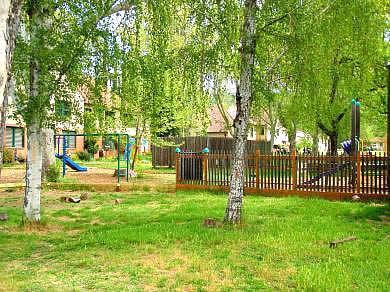
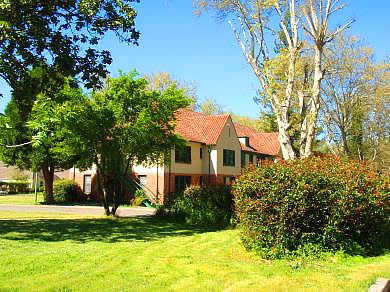
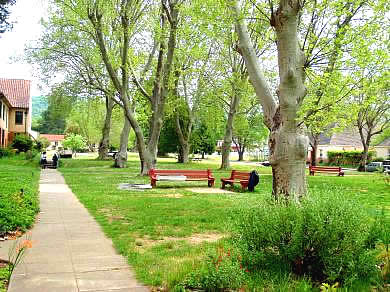
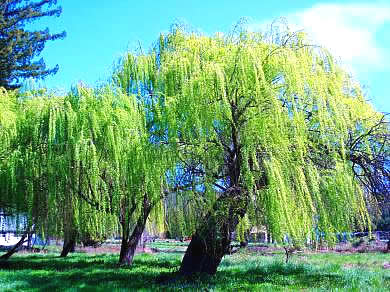
And so it went. In junior high and high school the differences between our school and most other schools became more evident; or at least we became more conscious of them. We had a much smaller student body, fewer material resources and more school rules, and we students took on more involved roles in the school, including cleaning the school building every week, organizing school trips and activities, and watching the younger students. Yet some important things remained the same. Our school was still largely staffed by the same lay volunteers and nuns, our curriculum included meditation, religion, ethics, and sometimes yoga or tai-chi, and it all took place in the same environment – CTTB, which means a lot.
After graduating from high school we went our separate ways to colleges in various parts of the county. For me, the beginning of college was mostly a big shock. Things were different in many ways, from conversational topics to larger life goals and philosophies, and I felt very unusual because of my background. I’ve heard a few people express concern that the school does not fully prepare its graduates for “the real world,” that this may confirm that on some level. And yet it seems to me that the school cultivates in students not a naiveté about the world (although this may happen to some people) but a firm sense that we should work toward some greater good for the world, troubled, turbulent, and complex though it may be. And it seems that what Master Hua meant by his idea that education is the best national defense is that it is important that we have more students with a sense of civic and global responsibility and moral grounding because it affects the well-being of a much larger community. It took a lot of adjusting for me to feel more comfortable in college, but I also became glad for many of my differences, because I think they allowed me to contribute in a unique and more positive way.
After college, my classmate Julia and I returned to teach at DVGS for a year. We had talked about doing this while in high school together. What I remember of it was that we were sitting at her cubicle in the girls’ dormitory in our junior or senior year and talking quite earnestly about our plans for after graduation. Our 9 th grade Biology teacher had been a graduate of the school and returned to teach for a year after college. In a moment of inspiration, one of us suggested that we do the same thing together, and the other agreed immediately. I don’t remember who suggested it and who agreed, but this plan, which seemed like it was decided on the spur of the moment, was something that we continued to refer to in our conversations throughout college. So when our fellow college seniors were applying for jobs and graduate school, we were filling out the teacher application for DVGS.
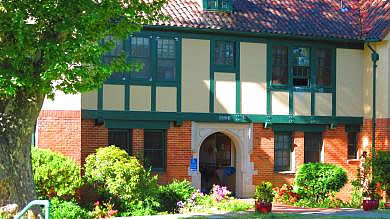
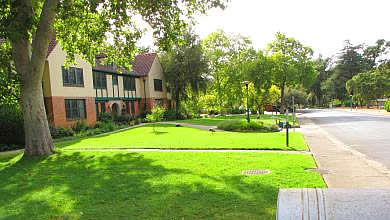
Though it had seemed like a spur-of-the-moment decision to come back to DVGS and teach for a year, the more I look at it the less incidental it seems to have been. Looking at it now, it seems to be a nearly direct result of the goodness and generosity that surrounded us as students in these schools. There was nothing surprising to us about being in a class taught by a young alumna who came back to volunteer as a teacher. We took for granted that our Chinese teacher was always glad to talk with us in her office despite any other commitments. Of course our principal was a Buddhist nun who was ceaselessly concerned for each student’s personal well-being and growth. What was implicitly understood from all of this was that the basic orientation of people is to work for the good of others; that others are always worth our time and attention. Whatever smaller human dramas that arose in school – as they inevitably arise – took place in this larger framework of understanding.
As new teachers, we were able to watch the students organizing, ushering, and performing during the Cherishing Youth Day and Honoring Elders Day celebrations.
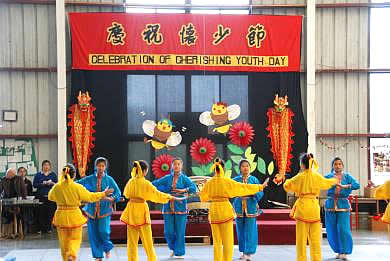
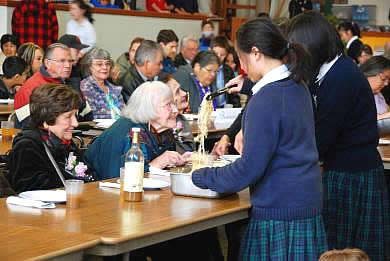
I found it to be astonishing. There was a remarkable amount of responsibility and trust given to the students, and on their part the students dedicated very sincere efforts and attention to making the events happen smoothly and successfully. Despite having been a part of it, this was not something I saw in high school because we were immersed in it and busy with the doing of it. To us it had seemed like the most natural thing in the world. And remarkable though it may seem to me now, what was true for us then still holds true now: though CTTB may be a rare environment and Instilling Goodness and Developing Virtue Schools unusual schools, what I learned here as a student about the ethical orientation of my life is something I can bring to all that I do “out there.”
And though the experience of this place and this school is very out of the ordinary, it also teaches the most unsurprising and unremarkable thing: that the goodness of our lives arises in our working for the well-being of others, who are always worth our time and attention, and for our larger community, of which we are always a part.
